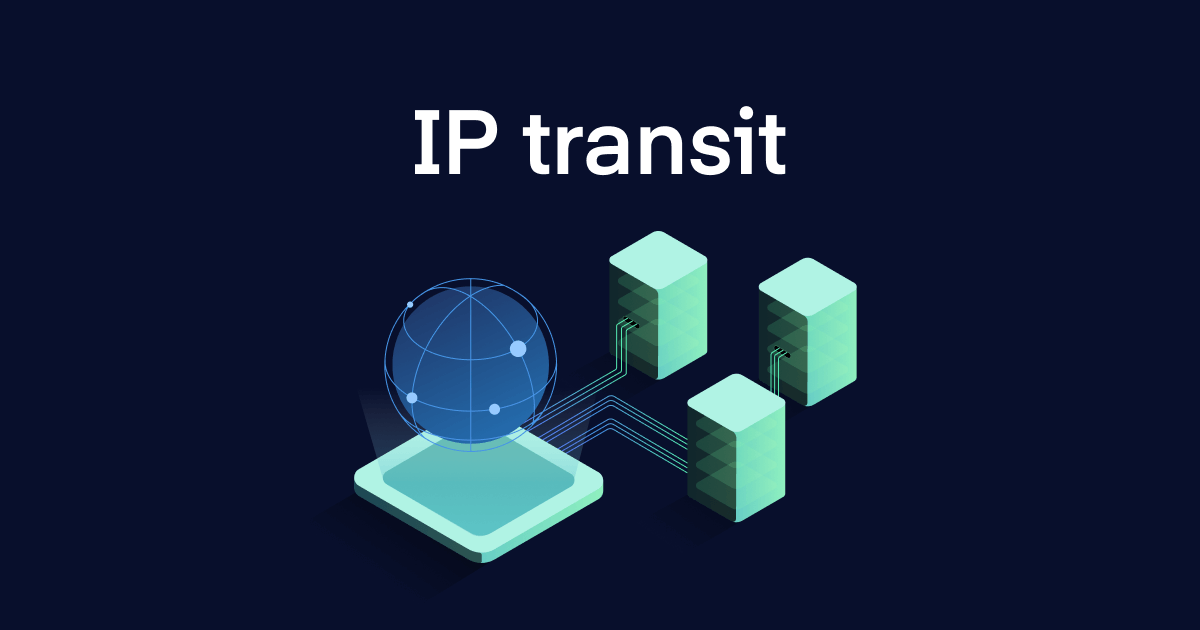In the ever-changing digital landscape of the present, companies of any size need fast and stable connectivity. IP Transit services allow data to be transferred over multiple networks. In this article, we’ll explore the basics of IP transit, the function of IP transit providers, as well as the many benefits and features these services offer to modern businesses.

What exactly is IP Transit?
IP Transit is a service that allows internet traffic to be transmitted through the provider’s network, allowing the communication between networks and autonomous systems. This service is vital for businesses that need access to the Internet or other networks to carry out their operations and exchange data or access online services. For more information, click internet transit
IP Transit Providers and Their Role
IP Transit providers are companies or organizations who offer internet services to other companies and entities. They manage networks of a large scale which provide connectivity to their clients. This allows data to move more efficiently between different locations on the internet. They are accountable for maintaining robust infrastructure, ensuring high-speed connections, and offering additional features to satisfy customer needs.
IP Transit Services: Key Features
IP transit services include a number of features that are specifically tailored to the particular requirements of various businesses. Here are the most important aspects to take into consideration when selecting a provider of IP transit services:
Carrier Grade Platform: A platform of carrier grade is an infrastructure network built to the highest standards. It guarantees security, reliability, and the ability to scale. This type of platform supports capacity-based and IP transport connections.
High-Speed Connectivity Backbone Modern IP transit offers connectivity over high-speed networks, typically 100G or 400G. This type of connectivity provides speedy data transmission and low latency for businesses relying on instantaneous processing and communications.
End-to-End Automation Automating plays a major role in IP transit services, which allows for effective management of network resources as well as decreasing the chance of human errors. Automated software is able to detect and fix issues quickly, ensuring optimal performance.
IPv4/31 and IPv6/127 Transfer Networks: IP transit services must support both IPv4 and IPv6 address space, allowing flexibility to businesses with different needs for their networks. Transfer networks such as IPv4/31 or IPv6/127 provide efficient address allocation. IPv4/29 and IPv6/64 are also available for added flexibility.
Transparent Pricing: Companies seeking IP Transit services need an open pricing system. Some providers offer different pricing models, such 95/5 percentile charges (which charges on the 95th centile of traffic), or flat-rate payment. A feature called”aggregated billing” across several ports can help businesses reduce costs.
Expanding the Locations of Networks IP Transit providers with more places of their network are able to offer better coverage and redundancy so that companies remain connected even if the network is interrupted.
100 100% Uptime: An agreement with a Service Level (SLA), guaranteeing 100% uptime, demonstrates the commitment to a provider the reliability of its clients and their satisfaction. This type of agreement provides the highest level of protection for businesses that can’t tolerate downtime.
How to Choose the Right IP Transport Provider
Businesses should evaluate their needs before selecting an IP Transit service provider. It is also important to evaluate the advantages and features of different providers. Be sure to consider the network infrastructure, speed, capacity automation, the ability to support multi-address spaces, price transparency, network location and uptime assurance.
When analyzing these factors companies can choose the IP Transit provider that will best serve their connectivity and growth needs in an increasingly connected world. A reliable IP transit service is the core of modern business, because it guarantees connectivity and communication to global networks.
